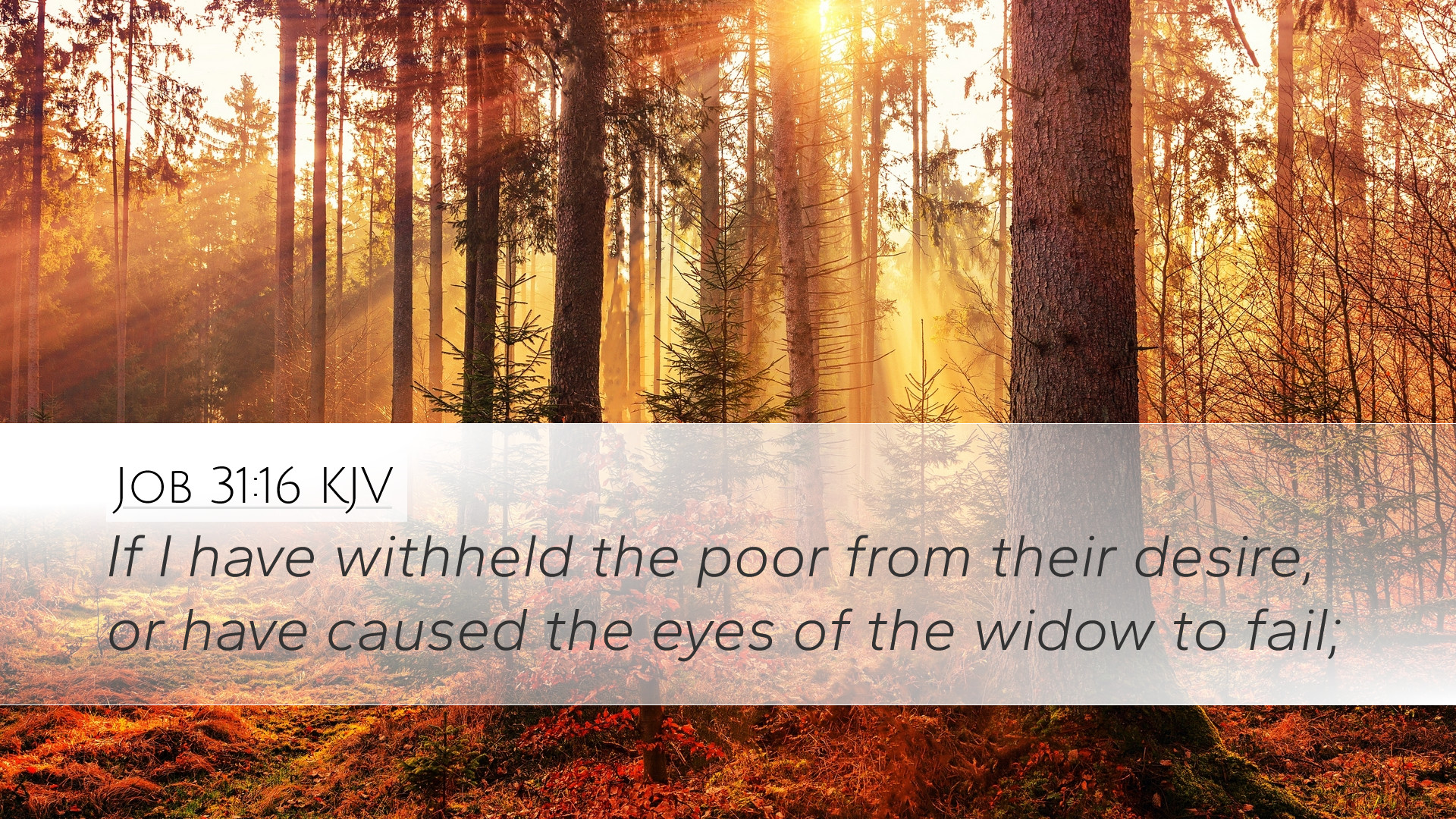Commentary on Job 31:16
Job 31:16 states: "If I have withheld the desires of the poor, or caused the eyes of the widow to fail." This verse speaks volumes about Job’s integrity and his social responsibilities. It reflects the moral ethos that permeates the teachings of Scripture.
Contextual Background
This verse forms part of Job's defense in his discourse, where he recalls his righteousness and the principles he adhered to throughout his life. Job confidently asserts his innocence in relation to various forms of sin, especially those that directly affect the needy and vulnerable, such as the poor and the widows.
Job's Relationship with the Poor
Job understands that wealth carries the weight of responsibility. As noted by Matthew Henry, "Great riches bring great responsibilities; if we are blessed with wealth, we must use it to help those in need." Job’s reflection on this verse is a moral indicator of his heart, as he remembers specific acts of charity and compassion.
- Divine Expectation: Job acknowledges that God expects his followers to care for the marginalized.
- Personal Accountability: He takes personal accountability for the consequences of his wealth upon others.
The Widow’s Eyes
The imagery in "the eyes of the widow" denotes a poignant idea of helplessness and vulnerability. Job's mention of widows resonates throughout the Bible, where care for the widowed is frequently emphasized as a hallmark of true religion. Albert Barnes expounds, "To cause the eyes of the widow to fail suggests withholding not only material support but also the hope of relief and kindness." This highlights the grave sin of neglecting those who are unable to fend for themselves.
Theological Insights
Theologically, this verse opens a discourse on the balance of justice, mercy, and social responsibility. Adam Clarke cogently remarks, "Religion is not just about personal piety but is deeply embedded in our actions towards others, especially the less fortunate." Thus, true faith manifests in our interactions and attitudes towards the poor and disadvantaged.
Principles of Justice and Mercy
- Justice: Job’s commitment to justice emphasizes that righteousness involves active participation in societal equity.
- Mercy: His expressions of mercy serve as an example of how believers are to exhibit compassion in their daily lives.
Application for Today
For pastors, theologians, and Bible students, Job 31:16 calls for introspection concerning the ethical implications of wealth and power. In a contemporary context, the question remains: “How do we engage with the inequalities present in society?”
Practical Steps:
- Assess personal and communal engagement with those living in poverty.
- Encourage church communities to create outreach programs for the marginalized.
- Preach about the importance of social justice as rooted in biblical ethics.
Conclusion
Job 31:16 serves as a profound reminder that faith must permeate our actions. It urges believers to adopt a perspective that values all human life, particularly those who are in despair. The collective wisdom from Matthew Henry, Albert Barnes, and Adam Clarke converge to reinforce this notion that the measure of one’s integrity in faith is significantly defined by their treatment of the vulnerable in society.


